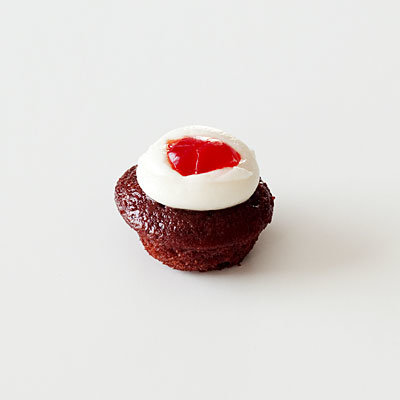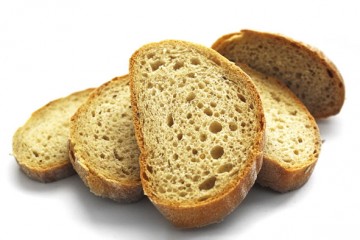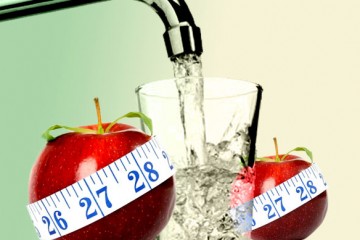5 Ways to Deal with Unexpected Weight Gain
5 Ways to Deal with Unexpected Weight Gain

It seems we’ve all been there at some point or another; we are eating healthy, exercising, doing what we are supposed to do, when we step on the scale and suddenly…
Dun, dun, dun!
The numbers have jumped forward instead of moving backward. Why does this happen when you are trying to lose weight? Especially if you are doing everything you are supposed to?
Hitting a plateau isn’t uncommon, and there are effective ways to deal with this unexpected weight gain. Here are five ways how:
5. Never Beat Yourself Up
Sure, the results aren’t what you wanted, but that doesn’t mean you deserve to bad-mouth yourself. Instead, it’s best to remember weight loss from a realistic stand point.
“Healthy weight loss takes time, and there is always a high chance that you may hit a plateau,” says Carrie Wissemeier, a Registered Dietitian and one of the lead dietitians for BistroMD. “Realistically, it’s important to keep this in mind so you aren’t surprised if it happens to you. A plateau doesn’t mean failure.”
In fact, a plateau is a natural way your body responds to a change in caloric intake.
"When you are on a weight loss program, your body is forced to work on a reduced number of calories," says Carrie. "It eventually adapts and trains itself to live on the calories it gets, without losing weight. This built-in survival mechanism is called 'metabolic adaptation' and it's a normal part of the weight loss process."
This is why you shouldn't beat yourself up when you plateau. Your body will eventually adjust and you will lose weight again.
4. Don’t Panic and React Drastically
If you hit a plateau, it’s best not to panic and not to make any drastic adjustments to your diet (unless you’re sneaking in unhealthy foods). Instead, stick with your plan and monitor your results over the next few weeks.
You may also need to make just a few small adjustments to your current plan.
"If you have plateaued, it's important that you keep eating three meals and regular snacks each day," says Carrie. "Adding a protein snack and an extra piece of fruit to a meal is a simple solution that could work. You may also need to exercise more, and make it a priority to weigh yourself each week."
If you do hit a plateau, never react drastically and switch your routine completely. This can really mess up your metabolism and can make weight loss even more difficult.
3. Don't be Afraid to Seek Help
If you find you aren’t losing as much weight as you would like, it may be possible that you need to seek some nutritional guidance.
“When people hit a plateau, it's important that they seek help if they constantly aren't seeing improvements in their weight loss,” says Carrie. “This is why consulting with a dietitian or nutritionist can prove to be invaluable. They can evaluate your needs and really set up a plan that's achievable for you.”
It’s also okay to re-evaluate your goals and to step back and analyze. Remember: healthy weight loss should be a lifetime commitment and it may take some time to get it right.
2. Re-Locate Your Motivation
When you first start a diet, you may be slightly dreading it, but you are also really excited to see yourself as a lighter, healthier person.
If you hit a plateau, it’s best to try to get back your initial motivation.
“In frustrating times like these, it’s important that you remember your initial reason for losing weight and wanting to be healthy,” says Carrie. “Living the language you speak is essential for staying on track and for achieving your goals.”
To get out of your plateau, write down your goals and hopes on a sheet of paper, and try memorizing them. Repeat them to yourself every day. The motivation you get just from doing this simple activity may surprise you.
1. Be Honest
Sometimes, we get so accustomed to our old eating habits that it seems almost impossible not to carry over these foods.
“People can be on a diet and not even realize that they are slipping back into some of their old habits, until they step on the scale,” says Carrie. “If you fear that some of your old habits may be reappearing, you may want to think about keeping better track of your food intake.”
Carrie’s best recommendation is to keep a food diary. Track your meals and your snacks for about three days, and then evaluate.
Keeping track of your food also makes you more accountable, making you less likely to reach for something that’s unhealthy.
For more tips from our experts, please visit our health library section for more information.
-
Say Goodbye to Back Fat by Following These Tips
Gaining weight turns into a real problem when fat starts building
-
How To Create The Best Weight Loss Program For You
Everyones body is unique. When it comes to losing weight, our bodies
-
How To Drink Your Excess Weight Away In 8 Weeks
Excess pounds are a problem to numerous of people, but burning the
-
Week 19: Tackling the Mouse
By Dawn I start the week feeling a bit ov
-
10 Delicious Treats for Under 50 Calories
We all need a little treat in our lives now and again. Sometim
-
Most popular Weight loss Diets Review
What are fad diets and can you lose weight by following any of
- DON'T MISS
- Perricone Diet Foods
- One Simple Teaspoon of This Will Help You Lose 3 Times More Body Fat
- Clean Eating – Does Eating Healthy Foods Matter For Weight Loss?
- What You Should Drink To Lose Weight?
- Staying Motivated For Weight Loss
- Take it Slow on the Seasonal Run for Supplements
- How To Make Your Own Weight Loss Recipes
- Cleanse Your Organism With Apples Once A Month
- Grams of Protein Per Day – How Much Do You Need To Eat Daily?
- Good & Bad Fat – Saturated, Trans, Polyunsaturated & Monounsaturated Fats




